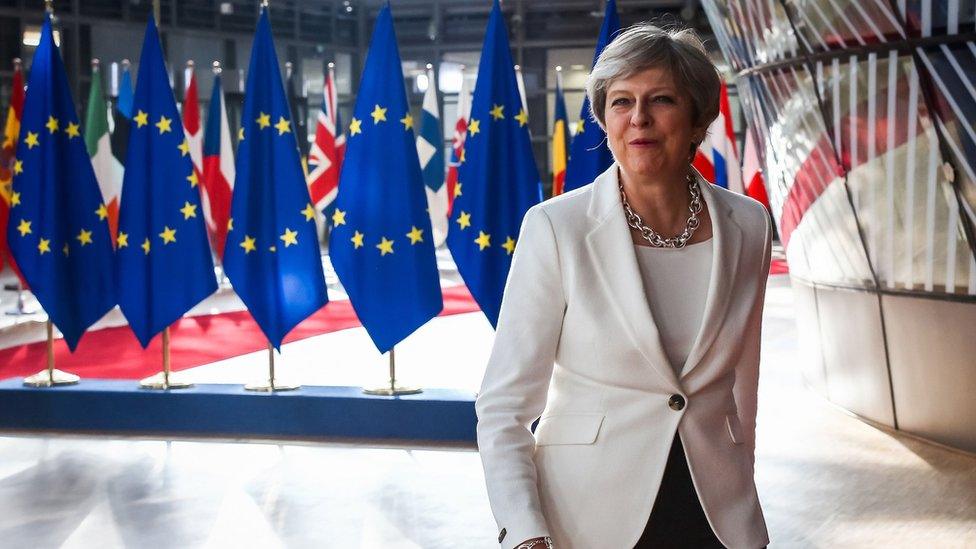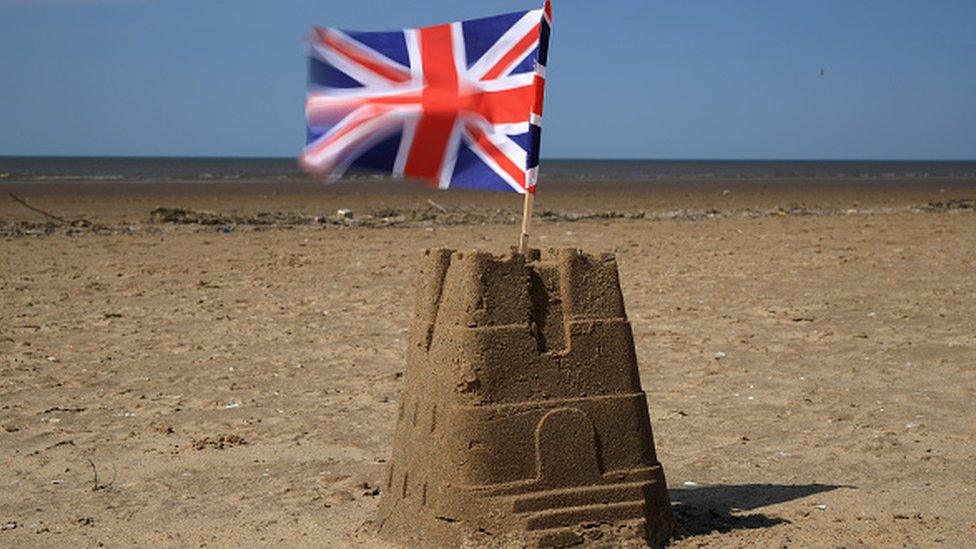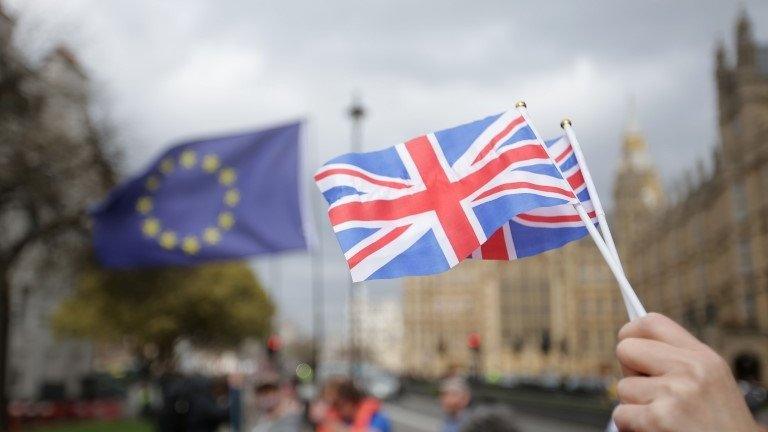Reality Check: What has happened since the Brexit vote?
- Published

It's a year since the referendum in which the United Kingdom voted to leave the European Union, and it's safe to say that no-one yet knows how this is going to turn out.
This month's general election has only served to heighten the sense that much of the Brexit process is still unknown - particularly the final destination.
So what has changed in the past year?
Well, in terms of the process, in March the UK triggered Article 50 of the Treaty of Lisbon, the formal route out of the EU that has never been put to the test before.
And - after an unexpected UK election that produced an unexpected result - formal face-to-face negotiations on the terms of divorce finally began earlier this week.
But there has been only one day of meetings between the two chief negotiators - David Davis and Michel Barnier - and there is an enormous amount still to do. That worries EU officials in particular.
Brexit and the UK economy one year on
UK's Brexit offer 'below expectations'
The next few months will be crucial. By October we should know whether a deal looks achievable on the elements of separation that the EU intends to focus on first: citizens' rights, a financial settlement, and the future status of the border between Northern Ireland and the Republic of Ireland.
For now, all we know is that the two-year period for Article 50 negotiations is due to come to an end on 29 March 2019, and unless all parties agree on an extension, that is when the UK will leave the EU.
Amid all this uncertainty, what about some of the claims that reverberated around the referendum campaign last year?
The claim: £350m a week going to the EU that could go to the NHS
The verdict: The famous £350 million-a-week slogan daubed on the side of a Vote Leave bus has been debunked many times. It wasn't true then, and it isn't true now. The UK didn't send £350m a week to the EU because the rebate was deducted before any money was sent, and there's no sign that such a sum will be plucked from a magic money tree to be sent to the NHS when we leave.
A big concern for the NHS post-Brexit is whether it will be able to recruit the staff it needs to keep services going. The number of nurses from the EU registering to work in the UK has dropped from 1,304 in July 2016 to just 46 in April 2017.
That's a problem because 6.9% of nurses and health visitors in the NHS and 9.3% of doctors come from countries elsewhere in the EU (and the European Economic Area).
The fall in the number of EU nurses registering for work is part of a pattern that has seen net migration to the UK fall even before Brexit happens. The latest figures from the ONS, external show fewer EU citizens arriving in the UK and more leaving. What we don't yet know is what kind of immigration system the government plans to introduce when it brings free movement of people from the rest of the EU to an end.
The claim: Another prominent claim from the leave campaign in the run-up to the referendum last year was that Turkey was on the verge of joining the EU, and the UK couldn't do anything to stop it.
The verdict: Again, not true then and not true now.
In fact, since the referendum, Turkey has lived through an attempted military coup, a massive crackdown on opposition and dissent, and a sharp deterioration in human rights. Several countries are calling openly for stuttering membership talks to come to an end, and Turkey feels further away than ever from joining the EU.
The claim: There were many warnings of dire economic consequences from the remain side during the referendum campaign.
The verdict: A Treasury analysis that a leave vote would tip the UK into recession and cause an "immediate and profound" economic shock has proven to be unfounded.
That may be partly because so little actually happened in the immediate aftermath of the referendum result. It took nine months to trigger Article 50, and for much of the past year there was a sense of a phoney war as the country digested what had just taken place.
But many of the economic forecasts were about what might happen after we actually leave, and we're nowhere near that point yet. However, there has been one clear economic consequence of the Brexit vote that has had a knock-on effect on inflation: a sustained fall in the value of the pound.
During the course of the past year, sterling has fallen by as much as 19.3% against the US dollar and 15.5% against the euro. It has recovered slightly, but on Thursday the pound was 15% lower than it was on 23 June 2016 relative to the dollar, and 13.2% lower against the euro.
The claim: Another economic argument, used this time by the leave campaign, was that the UK would be well advised to leave an economic union that was in terminal decline.
The verdict: In fact the latest projections from the OECD predict that the UK economy will grow by 1.6% this year and 1% next year, while the euro area will grow by 1.8% in both 2017 and 2018.
The World Bank is more optimistic about the UK economy, and the eurozone still has some serious underlying issues to grapple with. Perceptions can change quickly, but the election in France of a new young president in Emmanuel Macron has reinforced the idea that perhaps - just perhaps - the EU has got its mojo back, just as the UK shuffles towards the exit door.
So where do we go from here?
All in all, it feels like there still has not been an honest debate in the UK about what Brexit actually means in practice. Both the main parties avoided any serious detail during the course of the election campaign.
But debate has resumed about alternative models - the Swiss model and the Norwegian model - that were discussed at length before and after the referendum, only to be discarded once Theresa May announced that she was determined that the UK would leave the single market and the customs union.
Debate about the long-term destination, and the prospects for a lengthy transition period, will intensify in the coming months. But there is an urgent need for progress on some of the more immediate practical issues.
As a direct result of the decision to leave the EU, the government plans legislation that will totally recast national policy on immigration, customs, trade, agriculture and fisheries, nuclear safeguards and international sanctions, as well as the "Repeal Bill" that will transpose all EU rules and regulations into British law.
It is a vast undertaking.
It is remarkable how much we still don't know about how this process is going to unfold. One year on from the referendum, we are in many ways none the wiser.



- Published23 June 2017

- Published13 June 2017

- Published11 May 2017

- Published3 May 2017

- Published19 April 2017
